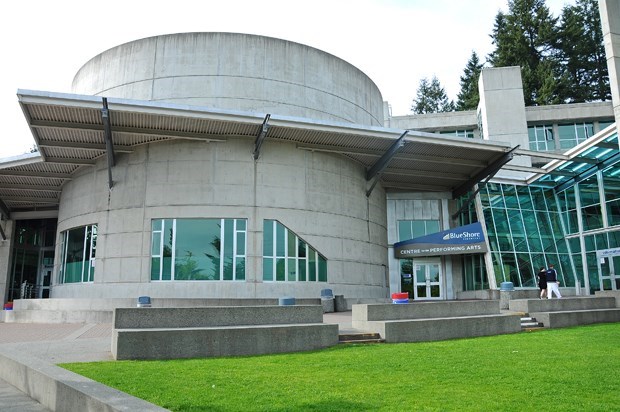Capilano University will require students and staff on campus to prove they have been vaccinated or face regular testing for COVID-19 – although the system won’t be up and running in time for the first week of school.
After first being told by the provincial health office on Aug. 23 that colleges and universities will not be allowed to mandate vaccinations, post-secondary administrators, unionized faculty and staff, and students had been lobbying all week for greater powers to limit the spread of the virus.
On Thursday, the B.C. Association of Institutes and Universities, which CapU belongs to, announced they had struck a new deal with the province.
“We are going to move towards a model in which, for the folks who are on the campus, we will be asking them to provide proof that they are COVID-free through a rapid testing model or to demonstrate that they have had a vaccination. And that is throughout the campus,” said Capilano University president Paul Dangerfield. “We wanted … to make sure that our campuses were meeting the minimum, but also making sure that our employees and our students and those visiting the campus would feel safe.”
Exactly what that will look like and how it will be enforced is still being worked out, Dangerfield said, but in the short term, it will have to rely on the honour system. Dangerfield said the system will be phased in over several weeks, ideally in sync with the B.C. Vaccine Card, and his hope is that it will be designed in such a way that it can be activated and deactivated as needed over the longer term.
Ontario universities have been given the independence to require vaccinations for anyone on campus.
Dangerfield said he believes there is already a high degree of uptake for vaccinations among the CapU community, but he said he will be asking Vancouver Coastal Health to make vaccinations available on campus. So far, the school has scheduled a two-day pop-up clinic Sept. 7 and 8 from 11:30 a.m. to 3 p.m. on Campus, but Dangerfield said he will be seeking more.
The move is being welcomed by the Capilano Faculty Association, which took the position that the province’s updated guidelines from earlier in the week, which required masks indoors and proof of vaccinations for things like campus pubs, dorms, clubs and gyms, were not enough.
“The paramount concern for us is the health and safety of all members of the Capilano University community and everyone who loves them, and our wider community,” said union president Eduardo Azmitia in a statement. “As the COVID-19 numbers increased, it became clear that the level of stress was increasing.”
Beyond the move to bring more assurance that the university community has been immunized, the faculty have also struck an agreement that will allow instructors to choose whether they will deliver their classes in person or virtually.
Capilano Students’ Union president Maia Lomelino said their membership will feel much more at ease attending classes once the system is up and running.
“The CSU is really happy that the university is taking further action to ensure the safety of students, faculty and staff,” she said. “We do support the decision to have the so-called vaccine passport for participating on community things because it is a very communicable disease, and we need to do whatever we can to keep it at bay, before new variants are developed and we lose hold of it again.”
But Lomelino added they will lobby the province to provide exemptions for students who can demonstrate a medical reason they cannot be vaccinated.
Ultimately, Dangerfield said, attending Cap will be a safe and enjoyable experience this fall.
“The main topic for September should be the excitement about coming back to campus. It shouldn't be around the safety measures,” he said. “We're in a good place to support students either in person or online, and to support employees in person or online.”



